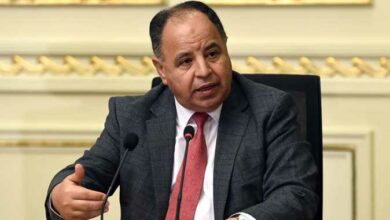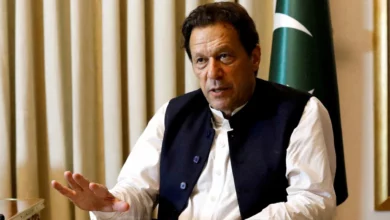Among the supreme ironies of the legacy of US policy in Egypt is that the economic reforms Washington invested in for decades are at risk of unraveling due to the lack of serious political reforms. The United States aggressively pursued economic reform in Egypt from the 1970s on, offering tens of billions of dollars in military and economic aid alongside other incentives (including the Gore-Mubarak Partnership, for example, and preparation for free trade talks) to cajole Egyptian officials into taking steps to encourage private industry and gradually move away from a statist system. US officials showed much less commitment to promoting political liberalization, believing incorrectly that economic reforms would eventually pave the way for political reforms.
Now the Egyptian uprising has not only turned the logic of prioritizing economic over political reforms on its head, but it has also discredited the economic reform program that former President Hosni Mubarak undertook, with the plaudits of the United States and international financial institutions. In an effort to help the Egyptian economy get on its feet again,the Obama administration finds itself in the uncomfortable position of funding economic programs at odds with free market principles. Secretary of State Hillary Clinton announced on 17 February that the United States was assembling an initial US$150 million emergency aid package, and Undersecretary of State William Burns and White House economic adviser David Lipton traveled to Cairo this week to discuss the terms. Finance Minister Samir Radwan reassured Undersecretary of State William Burns on 22 February that the transitional government would not retreat from economic reform or change the basic economic philosophy pursued by Mubarak since 2004.
It will not be easy, however, to change the political system in Egypt while preserving the old regime’s economic orientation, even if that orientation was a bright spot in Mubarak’s otherwise disappointing legacy. While the ruling National Democratic Party (NDP) had an abysmal record on political reform, it did manage to get one thing right: moving Egypt’s economy away from the statist model built by Gamal Abdul Nasser and toward a free market system that was hospitable to foreign investment and integrated with the global economy. Neoliberal reforms implemented by the NDP helped Egypt achieve a steady 7 percent GDP growth rate between 2005 and 2008. As a result of the party’s efforts to streamline bureaucratic obstacles to entrepreneurship, it now takes only seven days to start a business in Egypt, as compared to nearly six weeks in 1995, according to World Bank estimates.
Unfortunately the NDP’s brand of economic reform also included a generous dose of cronyism and corruption, including allocation of state lands for private development, concessionary loans for the ruling elite, and sweetheart deals on privatized state industries for regime figures. The unseemly scramble for NDP parliamentary nominations in November 2010 elections showed that the ruling party had come to be seen as a sure road to wealth. Meanwhile, ordinary Egyptian citizens were facing high unemployment and rising prices on basic commodities, and were becoming increasingly aware of a painful disparity in the distribution of the material benefits of economic reform.
Since the 25 January uprising and Mubarak’s resignation three weeks later, Egyptians have demonstrated their fierce determination to dismantle the old regime and everything associated with it, including neoliberal economic reforms. In his first effort to quell unrest, Mubarak fired the ministers best known for developing the free market agenda, including Prime Minister Ahmed Nazif and Trade Minister Rachid Mohammed Rachid as well as senior NDP member and billionaire Ahmad Ezz. The Egyptian government has subsequently frozen their assets and Ezz is already facing prosecution for corruption.
Now that the proponents of free market capitalism have been purged from Egypt’s government, economic populism has emerged as a compelling alternative to the neoliberal policies associated with the old order. Deteriorating economic conditions will make it difficult for Egypt’s new leadership to resist populist tendencies. The protesters may have left Tahrir Square, but Egypt’s economy is still reeling under the strain of paralyzing labor strikes, a frozen financial market, capital flight, and rising food prices. Although the devastating economic ramifications of the political unrest are just beginning to unfold, Egypt has already lost over $15 billion in output since the start of demonstrations on 25 January, according to foreign ministry officials. In the coming months, Egypt’s ruling military council will face mounting public pressure to provide immediate relief with subsidies and other welfare measures. Indeed, the interim government has already indicated a clear propensity for economic populism, promising to pump up government salaries by 15 percent and offering a monthly pension of LE 1500 (roughly U.S. $255) to the families of protesters killed over the course of the uprising.
Moreover, public demand for relief is not the only factor pushing Egypt’s leadership toward economic populism. The military junta charged with overseeing the current transitional process has a vested financial interest in promoting a regression back to the state-controlled economic model that prevailed under Nasser’s rule. As the proprietor of a vast business empire spanning the public and private sectors, Egypt’s military controls as much as a third of the national economy by some estimates. With its staggering array of manufacturing and service operations, the military provides everything from pest control services to washing machines, without ever paying taxes on or disclosing revenues that are believed to be stratospheric. A longtime critic of the NDP’s free market reforms, Field Marshall Hussein Tantawi, chairman of the ruling military council, has always favored government intervention in pricing and production. Now that the armed forces control Egypt’s government as well as its economy, Tantawi will be even more motivated to promote regulatory policies that would benefit the military’s business empire.
Emergency assistance to underwrite subsidies is probably unavoidable at present, but US and European policy makers should also engage Egyptian officials on more sustainable plans to get economic development and reform back on track. Protesters and opposition groups have yet to articulate clear economic platforms; the few policy recommendations put forward so far are concerned primarily with exacting revenge on corrupt NDP officials. While prosecuting the perpetrators of corruption is an important step toward achieving a more transparent and accountable political process, it is unrealistic to believe that seizing and redistributing lost billions will solve Egypt’s serious structural problems. Furthermore, the United States should discourage Egypt’s new leaders from undertaking commitments—such as Nasser’s pledge to guarantee government jobs for all university graduates—that will impose unbearable burdens on future governments. What Egypt needs now is a new blueprint for sustainable development, including policies to address structural inequality and sweeping reforms to resuscitate a floundering educational system that has failed to prepare Egypt’s youth for an increasingly competitive labor market.
US officials should also apply a lesson from Egypt to their dealings with other governments in the region: economic reform programs may not be sustainable unless they are accompanied by parallel improvements in political conditions and the rule of law. The benefits of Egypt’s structural economic reform program might eventually have trickled down to citizens at the lower end of the socioeconomic spectrum, had the program not run out of time due to mounting public dissatisfaction with repression.
Michele Dunne and Mara Revkin
Michele Dunne is a senior associate and Mara Revkin is a junior fellow at the Carnegie Endowment for International Peace.




